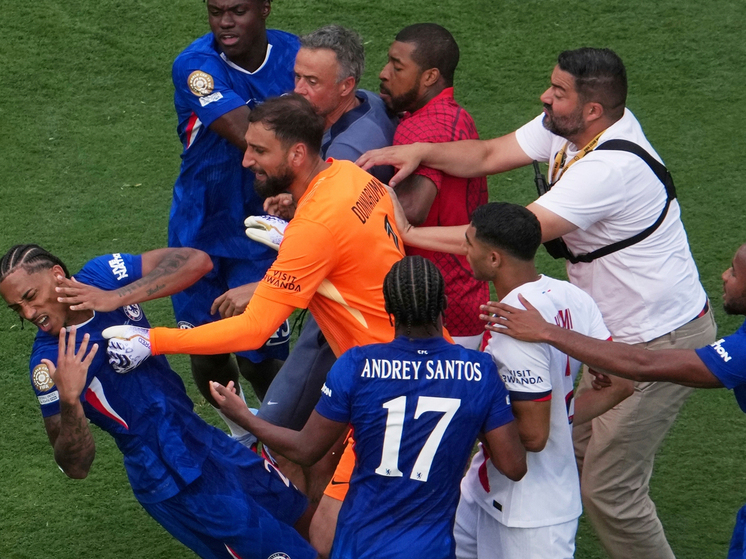In a compelling display of tactical precision, Chelsea lifted the first trophy of the expanded FIFA Club World Cup era, defeating heavily favored Paris Saint-Germain. The victory at MetLife Stadium wasn`t just a win; it was a statement, as the Blues effectively turned PSG`s own high-intensity, fast-starting game plan against them.
PSG had established themselves as the masters of overwhelming opponents early, a strategy that propelled them to a Champions League title and into this final. However, Chelsea manager Enzo Maresca and his squad clearly had a different script in mind. Instead of sitting back, Chelsea met the challenge head-on, unleashing a relentless high press from the opening whistle. As defender Levi Colwill noted post-match, the intention was clear: “to set the tone” and “press the life out of them,” leaving nothing on the pitch in their final game of the season.
This aggressive approach paid dividends swiftly. Catching PSG off guard and showing signs of early fatigue, Chelsea raced to a commanding lead. A brace from the in-form Cole Palmer, who continues to deliver in crucial moments, put Chelsea 2-0 up before the half-hour mark. Joao Pedro, a surprisingly impactful new arrival, added a third before halftime, effectively sealing PSG`s fate and giving them a taste of the early deficit they so often inflict upon others. PSG`s frustration boiled over later, culminating in a late red card and some testy post-match exchanges.
Despite finishing the match with significantly less possession (34%), Chelsea`s strategy was highly effective where it mattered most: in attacking threat. They managed more shots and registered a higher expected goals tally (2.06 vs. 0.53), demonstrating the clinical efficiency of their counter-pressing and attacking movements. Maresca highlighted the necessity of pressing PSG high due to their wealth of technical talent, acknowledging the challenge of maintaining such intensity for the entire match, but noting the first 10 minutes were crucial in establishing dominance.
The manager also revealed specific tactical nuances, detailing how Chelsea aimed to exploit spaces created by PSG`s midfield setup, utilizing players like Cole Palmer and Malo Gusto on one flank to overload and create opportunities. This underlined a well-researched and executed game plan that went beyond mere high pressing.
While Palmer`s heroics might have been anticipated given his stellar season, the emergence of Joao Pedro was a pleasant surprise. Having joined the club less than two weeks prior, the versatile forward quickly found his feet, scoring his third goal in as many games and earning a starting spot in the final. Maresca praised Joao Pedro`s adaptability and particular skill in tight spaces, making him valuable against teams employing a low block.
For Chelsea, a club that has experienced significant upheaval and roster churn in recent years under its current ownership, this Club World Cup triumph offers a moment of validation. It showcases the potential within their squad of developing talents and provides a clear glimpse of what the team can achieve when the tactical plan is precise and executed with high intensity. It’s a sign that amidst the sometimes-chaotic process of squad building, moments of clear vision and success are possible. Now, as Maresca quipped, it`s time for a well-deserved break after a non-stop period, before turning attention to building on this success.

